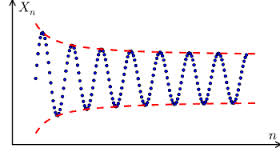sequence
英 [ˈsiː.kwəns]
美 [ˈsiː.kwəns]
- n. [数][计] 序列;顺序;续发事件
- vt. 按顺序排好
使用频率:

中文词源
sequence 顺序,次序,一系列,一连串
来自拉丁语 sequi,追随,按顺序,词源同 second,pursue.-ence,名词后缀。引申诸相关词义。
英语词源
- sequence
-
sequence: [14] Sequence is at the centre of a large family of English words that go back ultimately to Latin sequī ‘follow’ (others include consecutive [17], consequence [14], ensue, obsequious [15], persecute [15], prosecute, pursue, second, sect, subsequent [15], sue, and suit). Sequence itself comes from late Latin sequentia, a derivative of the present participle sequēns.
Another Latin derivative was sequēla ‘that which follows’, which has given English sequal [15]. Sequī came from the Indo-European base *seq-, which also produced Greek hépomai, Irish sechur, Lithuanian sekti, and Sanskrit sac-, all meaning ‘follow’.
=> consecutive, consequence, ensue, obsequious, persecute, prosecute, pursue, second, sect, sequal, set, sue, suit - sequence (n.)
- late 14c., "hymn sung after the Hallelujah and before the Gospel," from Old French sequence "answering verses" (13c.), from Medieval Latin sequentia "a following, a succession," from Latin sequentem (nominative sequens), present participle of sequi "to follow" (see sequel). In Church use, a partial loan-translation of Greek akolouthia, from akolouthos "following." General sense of "succession," also "a sequence at cards," appeared 1570s.
- sequence (v.)
- "arrange in a sequence," 1954, from sequence (n.). Related: Sequenced; sequencing.
权威例句
- 1. Only the opening sequence could claim to be genuinely innovatory.
- 只有开场片段能称得上是真正的创新。
- 2. The chronological sequence gives the book an element of structure.
- 时间顺序让这本书有了一定的结构。
- 3. He described the sequence of events leading up to the robbery.
- 他描述了抢劫案发生前的一系列有关情况。
- 4. a time-lapse sequence of a flower opening
- 一组延时拍摄花蕾开放的镜头
- 5. The book is more satisfying if you read each chapter in sequence.
- 这本书依次读各章会更好.